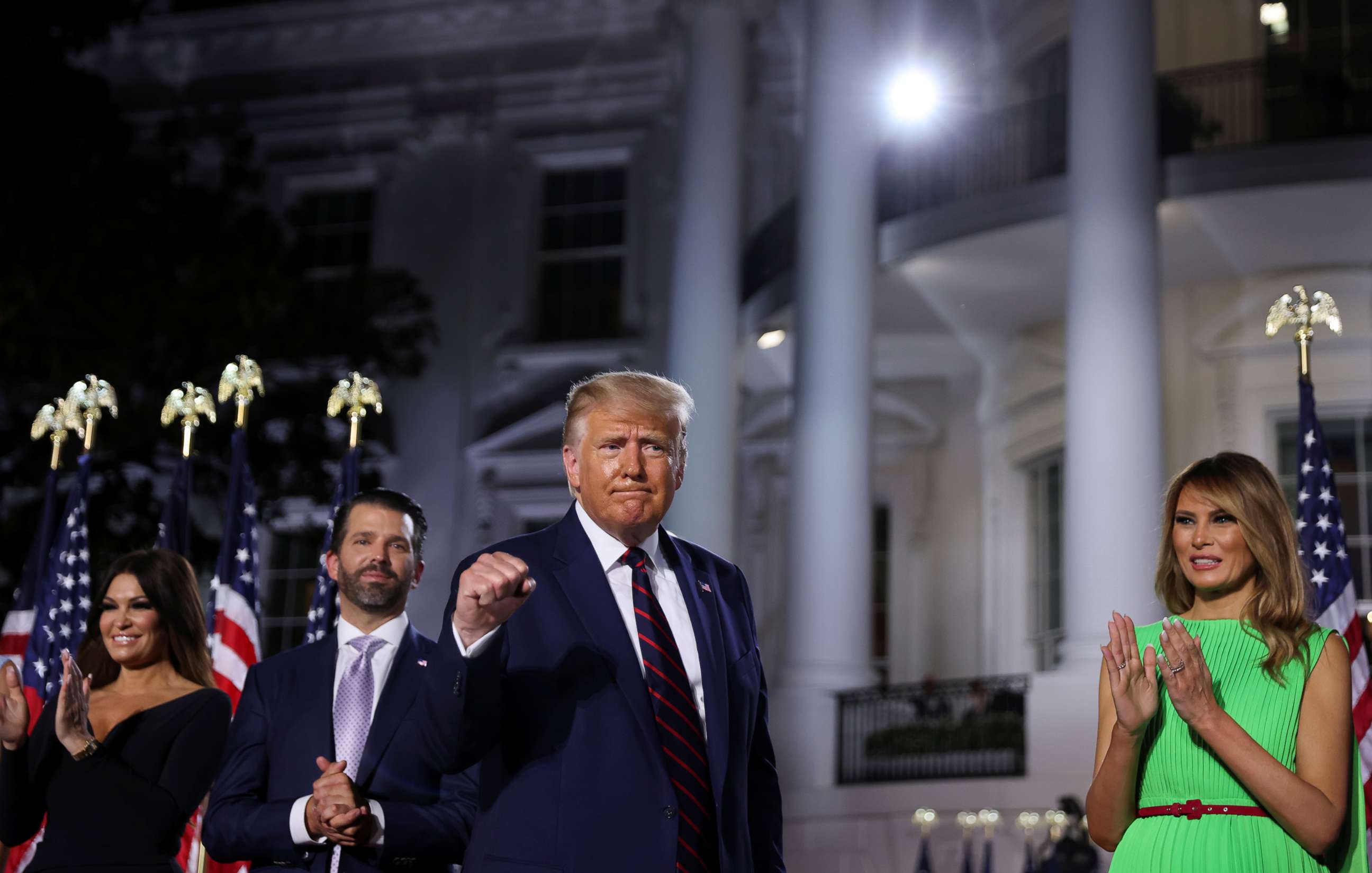Did Trump put a dent in negative approval ratings at RNC?: ANALYSIS
Probably not, but there's a long way to go until Election Day.
The two virtual conventions are done, and now we are on to the intensity of the presidential campaign in the final two months between President Donald Trump and Joe Biden when neither candidate or party will again have the opportunity to keep the stage to themselves for any real length of time.
As I related in my column from a few days ago, Biden was able to do what the Democrats strategically set out to do: to both solidify positive perceptions of him and his leadership, which is significant, in a time of division and polarization.
In that same column, I suggested that the strategic imperative of Trump was to significantly alter the negative approval ratings of him by the American public. In 2004, when I was chief strategist for President Bush, our primary goal was to change Bush’s net negative approval rating which had been in place for three months or so to a positive net job approval rating. We knew that if we were in negative territory it would be difficult for Bush to win re-election. We were able to accomplish this over the course of the 2004 GOP national convention.
Though we won’t have national poll numbers for at least a few days to determine if Trump was able to do this, my expectation is that the 2020 GOP convention was not able to accomplish the goal of fundamentally changing Trump’s negative approval numbers. Why?
1. The perceptions of Trump have solidified in the last few years and changing them would require a disciplined effort where all messaging was constructed with this goal. The RNC planners and the president didn’t seem able to settle on any one strategy -- they seemed to ping pong between various strategies throughout the convention. There were moments when they would try to soften his image, then this would be followed by vitriol aimed at the Democrats, followed by statements that Trump is the only thing standing in the way of coming Armageddon, to Trump’s own speech which didn’t have a real throughline.
2. One aspect of changing a president’s approval rating is to convince Americans that the country is headed in the right direction, leading Americans to feel better about Trump’s leadership. Prior to the RNC, nearly 70% of the public believed America was on the wrong track. And throughout the convention, speakers actually conveyed a sense that things are going wrong in America (they tried to blame the Democrats) and reiterated numerous negative news stories. This seems an unusual way to make Americans feel better about where things are in America today.

3. The RNC seemed to nearly completely ignore the reality of what is facing America in the midst of the convention. As deaths mount from COVID-19 each day, parents worry about their jobs and whether their kids can go to school safely. And with the racial unrest caused by lack of police reform and sports teams standing in solidarity with Black Lives Matter, there was a sense of the RNC pulling a "Wizard of Oz" -- telling folks to pay no attention to what they were seeing with their own eyes.
4. On ABC, when I was asked what could Trump do in his speech to help himself, I laughed and said that what I am about to suggest is highly unlikely because it isn’t who Trump is and within moments he would likely do or say something in direct conflict with this, but I thought showing some humility and admitting mistakes would go a long way to improving perceptions of him. (I know, I know it would be like suggesting he ride down on a unicorn from the sky and get serenaded by seraphim and cherubim.) Of course, he didn’t come close to this in words, tone or style. In fact, his unethical use of the White House as a backdrop to his speech conveyed the exact opposite of humility.
This is my initial assessment of whether the goal of permanently fixing Trump’s approval problem is likely to have been achieved this week, but in the next week or so we will see from national polling data if it was accomplished. There is much time to go until Election Day and Trump could still win this race because in this disruptive moment in American history we all have seen events take over in an instant. For now, though, it seems the Democrats helped themselves and the Republicans didn’t over the last two weeks.
Matthew Dowd is the chief political analyst for ABC News. Opinions expressed in this column do not necessarily reflect the views of ABC News.




